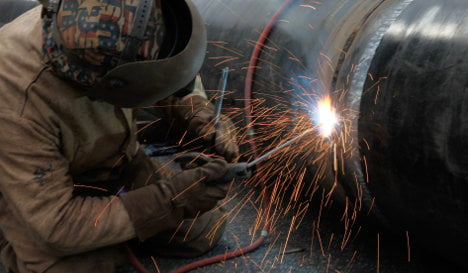The four institutes – the Ifo in Munich, DIW in Berlin, IW in Halle and RWI in Essen – predicted that Germany’s gross domestic product (GDP) would grow by 0.4 percent this year, compared to an earlier forecast of 0.8 percent.
“The German economy is facing an upturn. It will be carried by domestic demand,” said a joint statement by the four institutes.
The figures are largely in line with forecasts by the German government, which has predicted growth of 0.5 percent for 2013 and 1.6 percent for 2014.
Looking ahead to 2014, the German institutes said they saw a marked upswing from 2013, with growth of 1.8 percent in 2014.
“Growing employment and marked pay increases have already provided for a
robust development in private consumption for quite some time,” they said.
Germany has managed to avoid the recession encountered by many countries as the eurozone’s sovereign debt crisis developed.
But economic growth nevertheless slowed to just 0.7 percent in 2012.
READ MORE: Germans are poorer than Italians and French
AFP/tsb
Follow us on Twitter @thelocalgermany
Like The Local Germany on Facebook



 Please whitelist us to continue reading.
Please whitelist us to continue reading.
Member comments